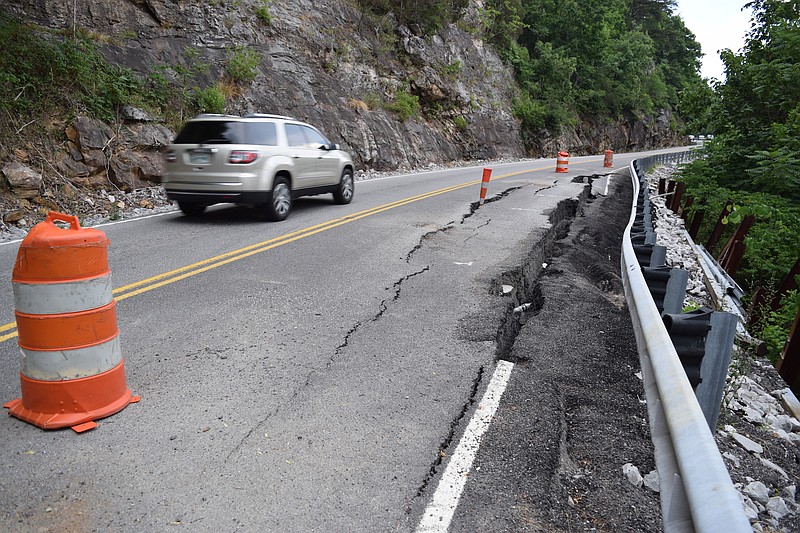It would be easy to say you just don't want to tax people, as one Tennessee legislator did Wednesday, and leave it at that.
But life's not that easy.
We're not in favor of taxing our way out of every problem, as many politicians on the left are, but we believe Gov. Bill Haslam's IMPROVE Act that raises some taxes - on gasoline and diesel fuel - and lowers others - on groceries, among other things - is a sensible solution to improving transportation infrastructure.
That plan passed both houses of the General Assembly in a bipartisan vote Wednesday - the Senate more easily than the House - and will need to return to the House for final passage before going to the governor's desk. At issue for the House is a provision for tax relief for eligible veterans and the elderly.
The upshot is it raises the tax on gasoline and diesel fuel six cents and 10 cents, respectively, over a three-year period but lowers the sales tax on groceries 20 percent - from 5 percent to 4 percent.
Several legislators, including state Rep. Gerald McCormick, R-Hixson, called it "the biggest tax decrease in the history of our state."
However, Sen. Delores Gresham, R-Somerville, told the Nashville Tennessean that "I'm simply not going to tax the people. It's just simply not in my DNA."
The fuel taxes were last raised in 1989. But, according to the Consumer Price Index provided by the United States Bureau of Labor Statistics, what $1 bought in 1989 costs $2 in 2017. Or, to look at it in another way, $1 today buys half the road material it did 28 years ago.
Currently, according to the state Department of Transportation, 962 road/bridge/infrastructure projects are in the works in all 95 Tennessee counties (including 23 projects totaling $600 million in Hamilton County). The less money allotted to them, the longer they'll take to finish and the less there will be for road maintenance.
Some legislators wanted to use the state's budget surplus to fund transportation infrastructure, but the state cannot depend on such surpluses. Without them, whenever the economy has a downturn, the Department of Transportation would have to come to the governor asking for a handout. That's no way to fund something as critical as highway and bridge infrastructure.
We're confident the House will be able to work out the final details on the proposal next week. If all goes according to plan, we'll pay more at the pump but less at the grocery store on July 1. And we can continue to enjoy roads that are consistently ranked around the top third among the 50 states.
